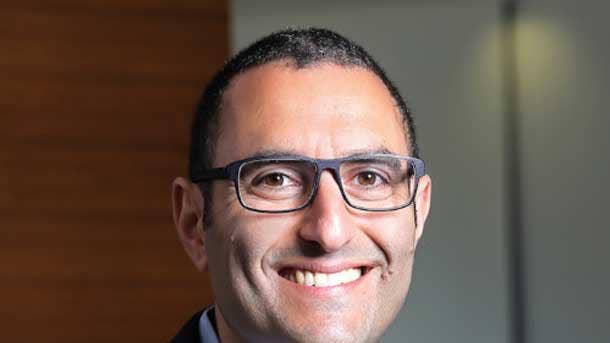The 10 Hottest Enterprise Networking Startups Of 2019
With cloud, automation, and intent-based networking on the must-have list in 2019, here are ten networking upstarts that made their mark on the industry this year.

Coming In Hot
Cloud, automation, and intent-based networking have been the name of the game this year and the factors that are helping networking upstarts make their mark on the industry in 2019.
Making networking easier is important and it's a big trend in enterprise networking right now as both the channel and end customers demand more automation and flexible consumption models for their IT environments. While some of the startups on this list partner with the incumbent tech giants, such as Cisco Systems, others see room to compete head-on with the giants in emerging markets, like SD-WAN and at the edge of the network.
Here are ten of the hottest enterprise networking startups in 2019.

128 Technology
Co-Founder and CEO: Andy Ory
128 technology emerged in 2014 and at the time was known as Primary Networks II. The networking company specializes in SD-WAN, edge, and security solutions and has been shaking up the hardware-centric networking market through its software router and networking platform.
Burlington, Mass.-based 128 chose to work with the channel in an "entrepreneurial" fashion. In August, the channel-friendly provider crowned a new channel chief when it brought on Mark Vella as vice president of business development and alliances.

Apstra
CEO: Mansour Karam
Intent-based networking pioneer Apstra is an 100 percent channel-focused firm with its AOS platform that differs from other intent-based networking solutions in that it works to automate data center operations across the network in large, enterprise data centers built on the equipment of various vendors, including Cisco, Dell EMC, HPE Aruba, and Arista, according to Menlo Park, Calif.-based Apstra.
In September, Apstra nabbed a pair of industry veterans to drive engineering and global business development, including Extreme Networks co-founder Herb Schneider as its vice president of engineering and David Butler to handle the company’s global business development.

Arrcus
CEO: Devesh Garg
Network infrastructure startup Arrcus, with its "network different" tagline, got its start in 2016 with its vendor-agnostic network switching and routing operating system. The company says that its mission is to provide software-powered network transformation for the interconnected world by connecting hybrid and multi-cloud environments.
The San Jose, Calif.-based company in July raised $30 million in an "oversubscribed" Series B funding round and launched a new version of its independent, and increasingly popular operating system, ArcOS.

Cato Networks
Co-Founder and CEO: Shlomo Kramer
Four-year old cloud networking and security provider Cato Networks comes to the market with a cloud service that integrates edge SD-WAN, global network backbone, and network security services.
The Tel Aviv, Israel-based company announced in January that it secured a $55 million investment round after growing its bookings by 352 percent in 2018. In November, Cato launched a global program for partners of all kinds, including master agents, subagents, VARs, and MSPs.

CloudGenix
CEO: Kumar Ramachandran
Founded in 2013, CloudGenix continues to pave the way as it shakes up the SD-WAN space. In fact, it finds itself facing off against the likes of Cisco and VMware frequently and is winning deals over the incumbents, according to the San Jose, Calif.-based specialist.
CloudGenix in July launched CloudBlades, a platform that can give branch offices all the IT services they need, such as cloud-based SD-WAN, security, and voice services, as well as multi-cloud access and operational tools in one place, without any additional hardware or software, the company's CEO Kumar Ramachandran, told CRN.

Forward Networks
CEO: David Erickson
Six-year old Forward Networks specializes in enterprise software for network management and software-defined networking. Today, the company is focused on stealing market share from the likes of Cisco Systems and Juniper Networks. Its innovative platform offers network visibility, policy verification, and change modeling.
In October, the Pao Alto, Calif.-based company secured $35 million in Series C funding, led by Goldman Sachs, one of Forward's prominent customers.

Lumina Networks
CEO: Andrew Coward
Lumina Networks, a market newcomer that got its start in 2017, was the result of Brocade being purchased and split up. Brocade's emerging SDN technology was acquired by Lumina Networks, which today offers OpenDaylight-based SDN controller solutions and services that can be used to deliver 5G.
The San Jose, Calif.-based company in October launched its Lumina Partner Program. Made up of five tiers, the program will partners unlock new revenue opportunities by creating innovative network solutions, the company said.

NS1
CEO: Kris Beevers
NS1, a traffic management provider that got its start in 2013, wasn't doing any business at all through the channel until October when it launched its first-ever global partner program aimed at attracting systems integrators, VARs, and MSPs.
The company has high expectations for the program for FY 2020. NS1's goal is to have the channel drive and source 50 percent of the qualified pipeline and revenue for its new business line, Warren Mead, vice president of channel partnerships for NS1, told CRN.

Teridion
CEO: Saar Gillai
WAN specialist Teridion kicked things off in 2013 with its platform that offers SLA-backed performance and reliability of existing WAN technologies, such as MPLS, along with the flexibility and global reach of the public cloud. The platform, Teridion for Enterprise, can be integrated with third-party SD-WAN solutions.
The San Francisco-based company announced in October announced it had expanded its SD-WAN portfolio into China for partners via their cloud-based network that now works through the three authorized Chinese ISPs -- China Mobile, China Telecom and China Unicom.

Veriflow
CEO: James Brear
San Jose, Calif-based Veriflow specializes in network verification and troubleshooting to help customers model, analyze and verify their hybrid networks. As a private company, it landed music streaming giant Pandora as a customer.
VMware announced its intent to acquire Veriflow in August for an undisclosed amount but the deal has yet to close. VMware said that once the deal has closed, it will invest in and integrate Veriflow into its vRealize Network Insight offering to increase its network monitoring and troubleshooting capabilities.